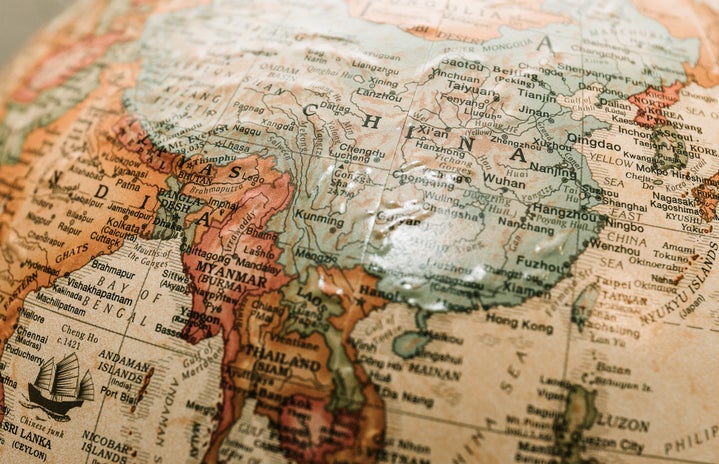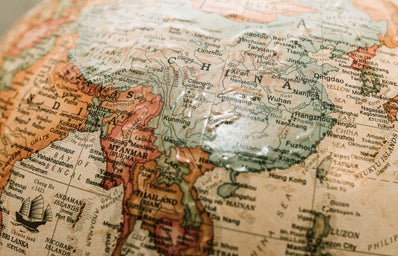Hallyu can be translated to ‘Korean wave’ and describes South Korea’s pop culture that has gained global popularity since the 1990s. This wave was initiated by South Korea’s K-Pop industry. The third generation of K-Pop, spanning from the early 2000s to today, is the largest, including a multitude of artists such as BTS and PSY who have topped the charts globally. The wave’s large-scale appeal can be explained by various factors, such as bands’ compelling visuality. K-Pop artists share exciting music videos accompanied by fun dances that can be learnt by fans. Moreover, they wear makeup and costumes that can be mimicked easily and express a unique Korean style that thrills the Western world.
K-Pop has made enormous profits for the South Korean economy – it was calculated to contribute over $5 billion to Korean GDP, which is only increasing, and was a huge contributor in enabling South Korea to become the 13th largest economy in the world.
Whilst many focus on the benefits of K-Pop to society economically and socially in South Korea as well as internationally, it cannot be denied that the K-Pop industry itself has many issues internally and externally that must be addressed.
Value of K-Pop to South Korea:
The K-Pop industry is extremely valuable due to its soft power and cultural diplomacy. For example, K-Pop artists have incorporated Korean culture into their music videos by wearing traditional dress – Hanbok – or showing scenes of South Korea, historical sites and typical restaurants and bars to give the global audience an insight into everyday life in Korea. Some artists also incorporate traditional Korean instruments and folk music. For example, in PSY’s music video ‘Hangover’, not only does he use traditional percussion sounds – taepyeongso – but he also strolls through many precious Korean spaces such as karaoke rooms, convenience stores, and spas. As Korean music becomes more popular internationally there is an increased attraction towards South Korea, which can be beneficial economically and politically. Recently, presidential candidates have even been using K-Pop songs in their campaigns, emphasising the sheer power of K-Pop!
Some argue the industry is being shaped to what will appeal globally and subsequently the music has become more Westernised. In addition, lots of famous K-Pop groups commit cultural appropriation by taking musical inspiration from, for example, African-American music without providing credit to Black artists. Therefore, it could be argued that lots of the music takes inspiration from the Western world without giving credit to the artists that inspired them.
The benefit of K-Pop to the South Korean economy:
The K-Pop industry contributes significantly to South Korea’s economy and is thus considered a large export for South Korea. BTS – the leading band in the K-Pop industry and one of the most popular bands in the world – has particularly contributed to the economy. Their song ‘Dynamite’ singlehandedly produced $1.43 billion in economic activity and helped generate 8,000 new jobs. In March, they had three live concerts which attracted 2.46 million fans in-person and online.
K-Pop concerts attract masses internationally, which further boosts tourism, and these concerts are often reasonably priced if not free! For example, BTS held their final concert (October 2022) in Busan before the artists’ army conscription, where over 70,000 people attended for free. This attracted many tourists to South Korea’s second-largest city.
Toxicity of the K-Pop industry:
K-Pop artists are heavily exploited and undergo mental and physical abuse. K-Pop artists are signed to ‘slave contracts’ which consist of the artists essentially losing most of their free will and being completely exploited by their managers. Every part of their daily lives is strictly controlled by managers, from phone usage to diet. They are forced to over-exercise and under-eat to meet unsustainable beauty standards. This causes artists significant pressure and results in dangerous incidents, such as an idol called Yeojin fainting on stage as a result. They are overworked and when they do experience success managers take the majority of profits. Furthermore, artists cannot question any of these standards as they then risk being dropped from this cut-throat industry.
Changes are happening:
Despite this fact, some attention has been drawn to the ‘slave contracts’ in the media and subsequent efforts have been made to prevent these from occurring. For example, the Korea Fair Trade Commission commanded the industry to end these contracts. However, despite best efforts, this is hard to regulate and therefore the issue persists. In addition, sexual harassment and bribery experienced predominantly by women in the industry is another huge issue which highlights gender discrimination. Women also tend to face more scrutiny, higher beauty standards and fetishisation in the public eye.
The community that accompanies the industry:
Although it’s clear that the industry is largely toxic and requires serious intervention, the K- Pop industry with its large connected fan base builds a community for many individuals internationally which can improve the well-being of many, including impressionable adolescents. The K-Pop community acts as a ‘unifier’, as fans create many chats and bases where they can meet other people online with a shared love for the band/artists. For example, BTS is notorious for having a strong fan base who refer to themselves as the BTS Army. BTS utilise this large fan base for good causes. For example, they created projects to help the Amazon and did speeches at the UN concerning climate change. This demonstrates the philanthropic side of the industry.
Overall, the K-Pop industry brings many benefits economically and culturally to South Korea. In addition, it has positive effects on the fan community internationally and it promotes philanthropic behaviour. However, the industry is accompanied by many significant issues and is largely toxic, riddled with abuse and gender discrimination. Nevertheless, action is being taken currently to overcome these issues with some suggestions emphasising having more female workers behind the industry and placing more women as managers. Increasing gender equality in the workforce could in turn improve the standards female K-Pop artists face. The possibility of change definitely makes the future promising.
Written by: Emily Cohen
Edited by: Joanne Spence-Thomas


